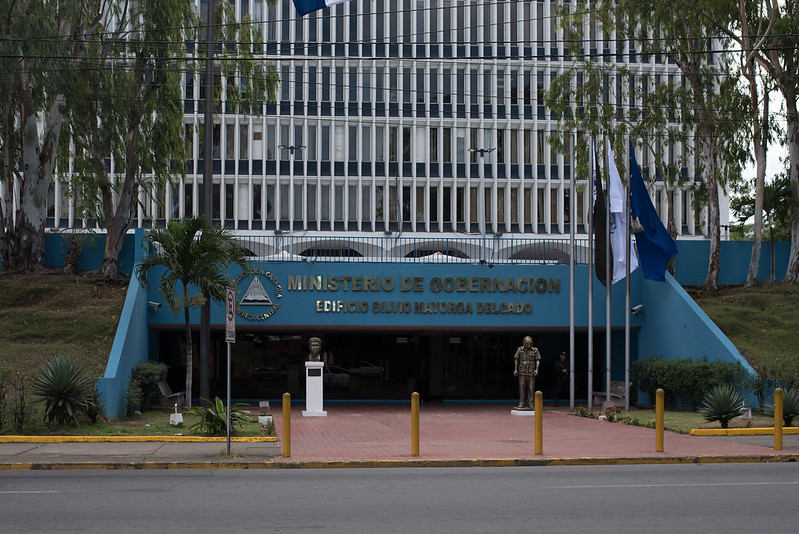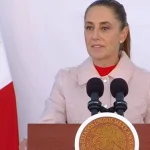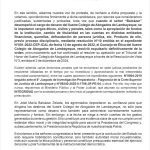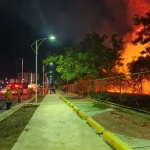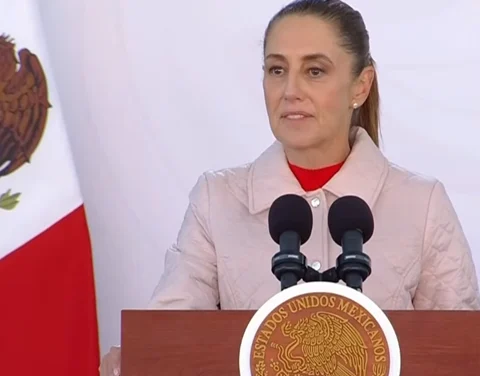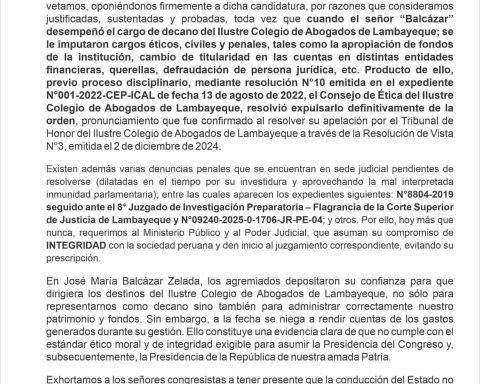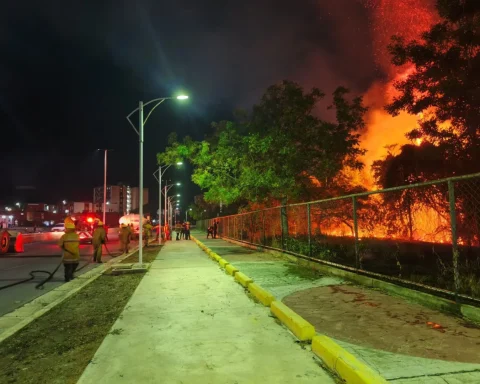The new one General Law for the Regulation and Control of Non-Profit Organizations (OSFL), approved by the regime of Daniel Ortega in Nicaragua, is “a confiscation” and an attempt to “robbery protected by law” against civil society organizations, considers the lawyer and notary public, Martha Patricia Molina, who maintains that the legislation contradicts the Political Constitution that prohibits confiscation.
The law also opens the possibility of civil or criminal prosecution of the directors of the organizations, Molina points out, since the second paragraph of article 38 warns that “the sanctions referred to in this law will be applied without prejudice to the civil and criminal responsibilities that correspond”.
According to Molina, a legal adviser would recommend to the directors of any organization that they close their operations in the country, “if they do not wish to be taken to prison as established in the second paragraph of article 38.”
However, the lawyer values that the most affected are the beneficiaries of the projects of the NGOs against whom the regime has directed a political hunt, canceling more than 110 legal entities between December 2018 and February 2022, as confirmed by an analysis of Data of CONFIDENTIAL. And in March the number continued to grow.
Regime manipulates FATF requirements
In the explanatory memorandum of the Law, the regime justified the new legal instrument as part of recommendation eight of the Financial Action Task Force (FATF), which indicates that countries must review the suitability of the “laws and regulations related to entities that can be improperly used for the financing of terrorism”, and the new measures must be focused on promoting transparency and fostering greater confidence in the donor community and in the population in general.
However, Molina considers that this new law –as well as the Law for the Regulation of Foreign Agents– were not created to comply with the FATF recommendations, as the Government would have us believe, because their approach is to “criminalize” the NGOs that have played a transcendental role in the country, including the participation or support of some in the social outbreak of April 2018.
Indeed, since the so-called April Rebellion, the regime attacked civil society organizations and, in that year, canceled the legal status of nine NGOs, de facto confiscating their assets, including media facilities. CONFIDENTIAL and 100% News. Then, in 2021, the illegality was completed, awarding the assets of the NGOs and the media to the Ministry of Health.
In article 47 of the new law, approved in an emergency by the National Assembly, nine grounds are indicated for the cancellation of the legal personality of an NGO and the transfer of its assets to the State, which, clearly, is a confiscation, according to Nicaraguan lawyers explain.
Among the new reasons cited by the law, the regime included the non-compliance with the presentation of the financial statements and the updating of its boards of directors before the Ministry of the Interior (Migob), requirements that have been instrumentalized by the Migob as an argument to liquidate good part of the 143 organizations from 2018 to March 2022.
The most recent cancellation of NGOs occurred on March 17, when the regime-controlled National Assembly closed social service, development and democracy organizations. In February of this year, it also intervened five private universities, which it previously left without legal personality, and with its assets it created three new state houses of study, under the direction of operators loyal to the Ortega regime.
Another way to “confiscate”
The regime also did not leave out the fate of the NGOs’ assets and placed them between “a rock and a hard place,” Molina points out.
“It establishes that ‘the destination of the remainder of the liquidation of assets, rights and shares of the NPO will be carried out in accordance with what is established in its articles of incorporation or bylaws’, but at the same time it requires it not to be able ‘to be distributed among its members ‘ and if nothing is disposed of, it will become the property of the State of Nicaragua”, he underlines in accordance with article 46.
“The NGOs promote human rights and with this new law they will be formally accused when they try to carry out the activities for which they were created and everything will be considered” violating public order, “added Molina.
Amaru Ruiz, president of the confiscated Fundación del Río (which denounced the official negligence regarding the fire in the Indio Maíz Reserve, in 2018), considers that the background of the law is to “sweep” civil society organizations that do not have any link with the regime of Daniel Ortega and Rosario Murillo.
In the last four years, the ruling party has dismantled 143 organizations, foundations or associations that promoted social, political, environmental, economic, human rights, democracy, education and health development in Nicaragua, among other organizations for different reasons. The beneficiaries of these NGOs have lamented the government decision, which translates into the stagnation of several projects that sought to improve their quality of life, with projects for access to drinking water, local financing, and training on various topics, or promotion and defense of human rights and public freedoms.
Migob can suspend and intervene an NGO
This March 31, the National Assembly urgently approved the new law that prohibits direct or indirect political proselytism and that organizations use their structure “to violate public order” or promote “destabilization campaigns” in Nicaragua.
The law presented by the president of the Assembly and Ortega deputy, Gustavo Porras, was approved with 77 votes in favor by the ruling party, 12 abstentions and two present. The document made up of 12 chapters and 57 articles repeals Law 147, General Law on Non-Profit Legal Entities.
They cannot carry out direct or indirect activities that imply political proselytism; NPOs cannot intervene in party political matters, nor violate their objectives for which they were created and registered in this country” and finally, they are restricted to “use the organizational scheme to violate public order, promote destabilization campaigns in the country , supporting, facilitating and inciting the affectation of citizen security and the legitimate exercise of human rights of Nicaraguan families”, reads the document.
The Law confers new powers to the Ministry of the Interior, including intervening and suspending an organization for a period of up to three years for non-compliance with an obligation or carrying out actions prohibited in the new law, according to article 41. These provisions allow the Migob, an institution aligned with the regime, act discretionally against NPOs.
According to the lawyer Juan Diego Barberena, the law should have specified the express grounds for the Migob to intervene an NGO; a faculty that he, he adds, is questionable. The only authority to guide an intervention of a legal or commercial person is a judge, the specialist clarifies, since the procedure is a precautionary measure prior to a civil or criminal judicial process. “It is the judge who must authorize the intervention,” he stresses.
The law indicates in article 40 that the Migob may “intervene for as long as it deems necessary to the NPOs” and this “may lead to the suspension or the issuance of the legal opinion to request the cancellation of the legal personality”, reads in the text.
Barberena questions that “the procedure for the intervention is not established, but in addition, it is the regulatory entity – the Migob – who is going to dictate the same intervention, who is going to intervene; that is, he is judge and jury”.
Article 34 also indicates among the obligations of the organizations that they must “present financial statements according to the fiscal period”, but it is “something that only remains on the paper of the law”, says Molina. In practice, the Migob, which is in charge of receiving the documentation, deliberately does not do so and subsequently uses the alleged non-compliance of the NGO to request the cancellation of its legal personality.
Some directors of the canceled organizations denounced that the Migob imposed obstacles to receiving the documentation, despite the fact that on several occasions they tried to present their accounting, financial and organizational records.
For Molina, the Migob has become the “instrument to criminalize NGOs.” First it was with the Law for the Regulation of Foreign Agents, and now with this new law, which will only “have it for decoration,” he estimates, “because when an NGO that wishes to formally present its documentation will not accept it” because “that It has been their repeated practice.” “The Migob – he stressed – does not adhere to the law, it is one more company of the Ortega Murillo family, it is not a serious institution, but rather a persecutor of the NGOs.”
The Migob also has the power to carry out supervision and control visits to NPOs. From Barberena’s perspective, the regime no longer has to resort to another law to violate the right of association, since the new regulation does so.
Regime tries to justify illegalities
The Ortega regime has “used” recommendation number eight of the Financial Action Task Force (FATF), – countries must establish targeted and proportional measures, in line with the risk-based approach, to such non-profit organizations to protect them from abuse for the financing of terrorism – to “legalize” in some way the confiscations that organizations have made with the closure, explains Molina.
“Everything that the dictatorship argues –in the law– is a fallacy. And because of this, it is necessary for the FATF and the international community to know that the dictatorship uses the law to give the appearance of legality to the multiple illegalities and violations of rights of all kinds”, said the specialist in Law.
Along the same lines, the Nicaraguan Human Rights Collective Never Again rejected the new law that regulates NPOs and assured that it was approved with “the false argument of following the FATF recommendations, the which he’sState of Nicaragua is a subscriber”.
Considers that this law is part of the “strategy persecution and criminalization of the right of association and participatescitizen tion” In Nicaragua. Barberena claims that it is a reflection on the part of the State of wanting to “coercively control non-profit civil organizations” and violates the right to property.
